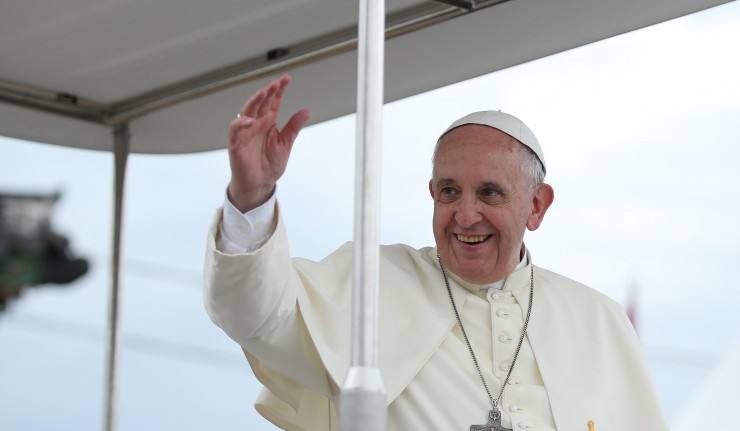In our industrial societies, energy policies are steeped in paradox. Ideology versus pragmatism, ecology versus economic appetites, idealistic sobriety versus materialist hedonism. Nothing should be further from energy policies than announcement effects or emotional reactions. But in our troubled times nothing escapes this scourge. Could this autumn’s soaring prices and risks of shortages give Europe an opportunity to set a course? Renewed interest in nuclear energy provides some answers.
The relaunch of the French nuclear program
France – In a televised address on 9 November, 2021 , French President Emmanuel Macron announced the construction of six new nuclear reactors in France: a landmark decision since completion of the latest French reactor in 1997. It is a proactive decision on two standards: the production factor of French nuclear power plants fluctuates between 73% and 75%, i.e. below its 2005 peak of 77%. Furthermore, the decision to build new reactors should not take effect before the commissioning of a new nuclear reactor prototype, the EPR (European Pressurized Reactor) at Flamanville, which is already ten years behind schedule and cumulates 8.9 billion euros in additional costs.
The current will to “decarbonize” the economy at all costs puts nuclear power in a favourable position. And soaring energy prices this autumn allowed one to face up to what is considered a taboo among many environmentalists. The EU is in dire need of abundant and cheap electricity, and the nuclear industry has no other choice but to improve itself so as not to be downgraded.
Moreover, this French announcement is part of a strategy that has been maturing for several years. In 2018, a report commissioned by French Economy Minister Bruno Lemaire recommended the construction of six new EPR reactors starting 2025. In November 2020, another report planned for state funds to finance half of the estimated €47.2 billion budget. Finally, the day before the presidential address, at a press conference EDF (Electricité de France) announced it was ready in the event of the launch of a construction program.
The April 2022 presidential elections are also to be taken into account: all the right-wing primary candidates, as well as Marine le Pen and Éric Zemmour, have aspirations to relaunch the construction of nuclear reactors.
European expectations in terms of nuclear energy
Emmanuel Macron’s statement follows on from the common position published earlier this autumn by many European countries. The ministers of ten EU member states published in October a collective column entitled “We Europeans need nuclear power!” This timely tribune was published as Europe faced soaring gas prices. Post-electoral hesitations were weakening Germany, where negotiations for a new coalition were taking place. Indeed the Federal Republic assumes a stubborn desire to phase out nuclear power. However, the signatory countries of this common position surround the Germanic space in an interesting coalition. On one side there is France, one of the world-class players in nuclear energy; on the other, the four Visegrád countries: Poland, Hungary, Czechia, and Slovakia, extended to the east by extra-Schengen states (Bulgaria, Romania) and to the integrated western Balkans (Croatia, Slovenia), with also a Baltic partner, Finland.
The Finnish case deserves a closer look. This prosperous EU country, integrated in 1995 with Sweden and Austria to form the EU-15, is at the forefront of pro-nuclear lobbying. Five political parties, including environmentalists, form the ruling coalition. Until now, the Greens had ruled out considering nuclear energy as sustainable, which is precisely the requirement stated in the joint declaration. An updating process therefore seems to be underway, even in the far north where environmental sensitivity represents a considerable political force. Paradoxically, the dogma of entropic global warming supports the nuclear lobby’s claims of “technological neutrality” regarding carbon emissions.
A new balance of power in the EU
Transnational cooperations vary depending on the subject. We know how much migration issues divide the EU’s East and West. In regard to nuclear power, there is a constellation of countries facing Germany and some of its neighbours (Austria, Denmark, Belgium, Luxembourg). In the Spring, Viktor Orbán and Emmanuel Macron were able to show their solidarity on the nuclear issue, at the European summit on 25 March. A convergence of views which adds to the shared ambition to mature a European defence policy. Facing them, Germany intends to advance its pawns in the wake of Angela Merkel’s 2011 early decision to phase out nuclear power. This orientation, displayed after the Fukushima accident was partly a matter of political communication in order to pull the rug out from under the environmentalists. Germany now wants to extend its choices and their consequences to Europe. The energy debate promises to be heated as winter gets colder and the price of energy higher.
European treaties allow each country to decide on its energy mix, leaving some limited room for manoeuvre to fulfil the dual objective of abundant and carbon-free energy. In the opinion of the ten European government signatories, a low-carbon future requires full recognition of nuclear power, alongside gas in a complementary fashion. In pointing out that half of the carbon-free electricity in Europe already comes from nuclear power, the signatories insist on its unavoidable nature. The aim is to obtain a neutral status for nuclear energy, as that of gas, and thus include nuclear in the European framework for sustainable financing. This is, in a nutshell, the whole issue of European taxonomy which is the subject of lobbying at the highest European level. The fight is more uncertain than ever, and the European Commission must make its decision by the end of 2021.
The absurdity of the situation should be well understood: different sources of energy are left to virtuous rivalry. Several years or decades of service and regular innovations allow investors to provide informed support to projects of their choice. But everything, in the end, seems to hang on the green taxonomy that the European Commission is slow to finalise.
What does Europe want?
The revival of nuclear power is a guarantee of strategic autonomy and energy self-sufficiency. Without this, it is impossible to envision the deployment of an industrial policy and the maintenance of productive employment in our countries, in the face of international competition.
Nuclear power seems to be an advantageous bet for many countries in Europe. EDF made a non-binding offer to the Polish government to build 4 to 6 nuclear reactors using the EPR technology. This will support the energy agenda that Poland has adopted for 2050. Such nuclear plants would provide 40% of Poland’s energy needs for the next 60 years. This is an already existing trend: the Polish Nuclear Power Program (PPEJ) has been closely monitored by EDF since its inception, with support from the French government.
The French presidency of the EU in the first half of 2022 could offer the opportunity to give the relaunch of nuclear power in the EU its full potential. Not in isolation, but according to an overall plan where the construction of nuclear reactors would involve many countries, which would reduce production costs even more.
This is especially true for a new type of nuclear reactor: small modular reactors (SMRs). In this area, the United States and Russia have an important lead over France: where it is thought a prototype will not see the light of day before 2030, and commercial exploitation would of course be subsequent. Small modular reactors are ideally suited to replace coal-fired power plants; existing infrastructure can be kept, by using the same switching stations and high voltage lines to bring electricity to cities.
Conclusion: accept European diversity in matters of energy
France cannot close the book on nuclear power and Germany cannot draw a line under its wind / natural gas combination: the two systems must coexist, and European taxonomy must reflect this plurality. If Paris has respected Germany’s decision to phase out nuclear power, Berlin must respect the approach adopted by France, Finland and Central Europe. In 1957, the Treaty of Rome established the EEC (European Economic Community) and the EAEC (European Atomic Energy Community). In other words, nuclear energy cooperation has been a cornerstone of European unity from the start. Finally, the marginalisation of civilian nuclear power implies the decline of military nuclear power. From this point of view, abandoning nuclear power is not only economically damaging, it is also a political mutilation of great consequence to Europe in the twenty-first century.




